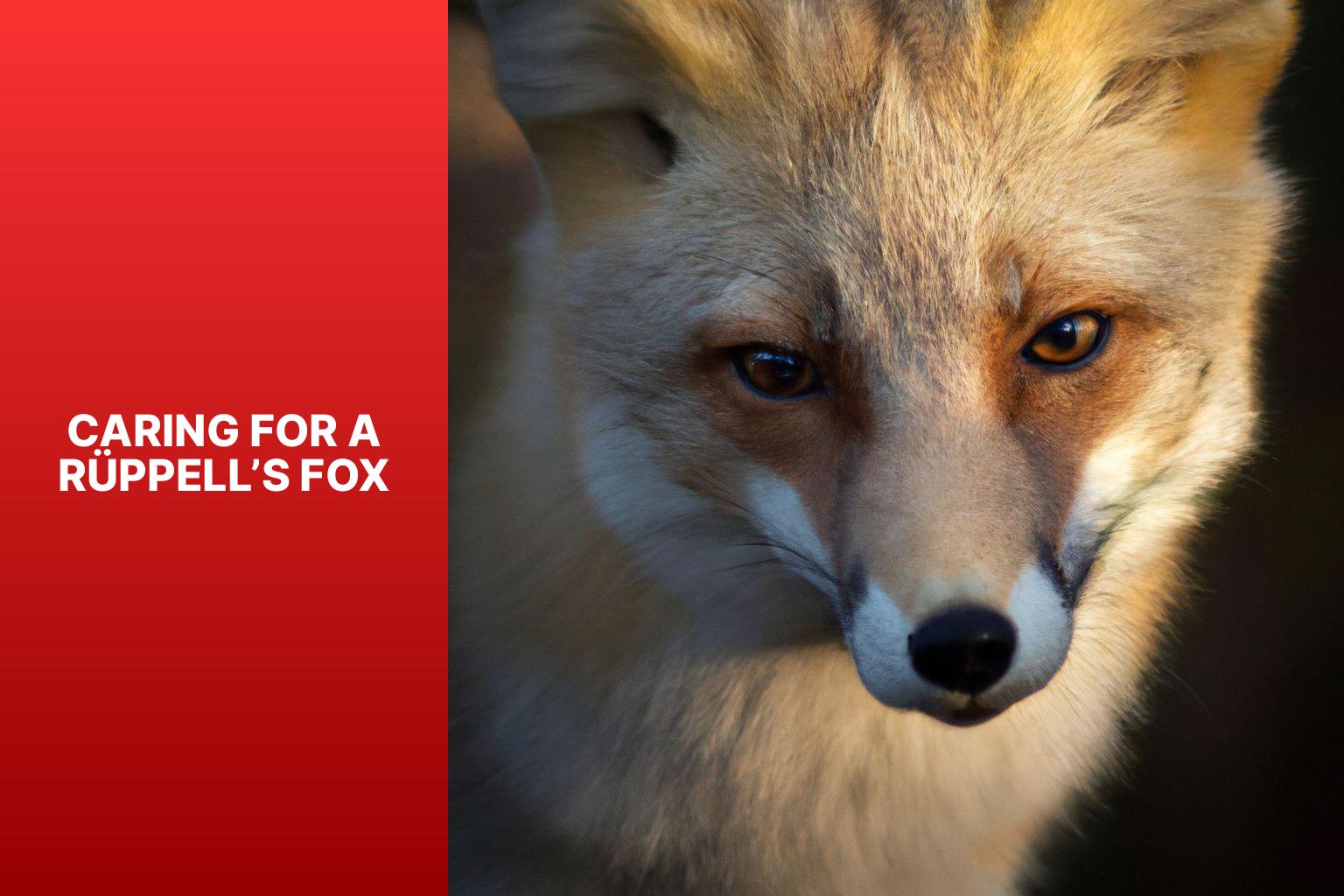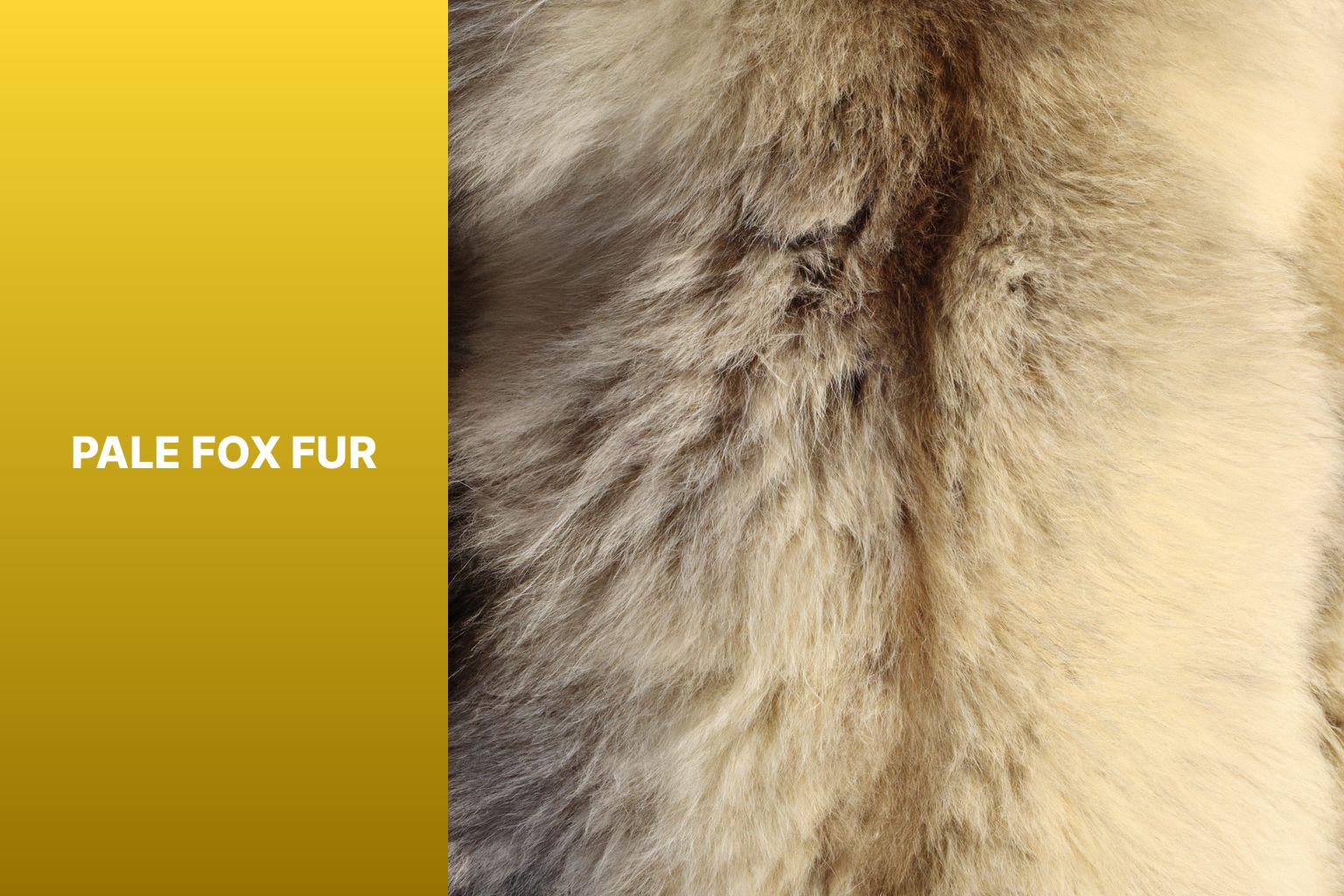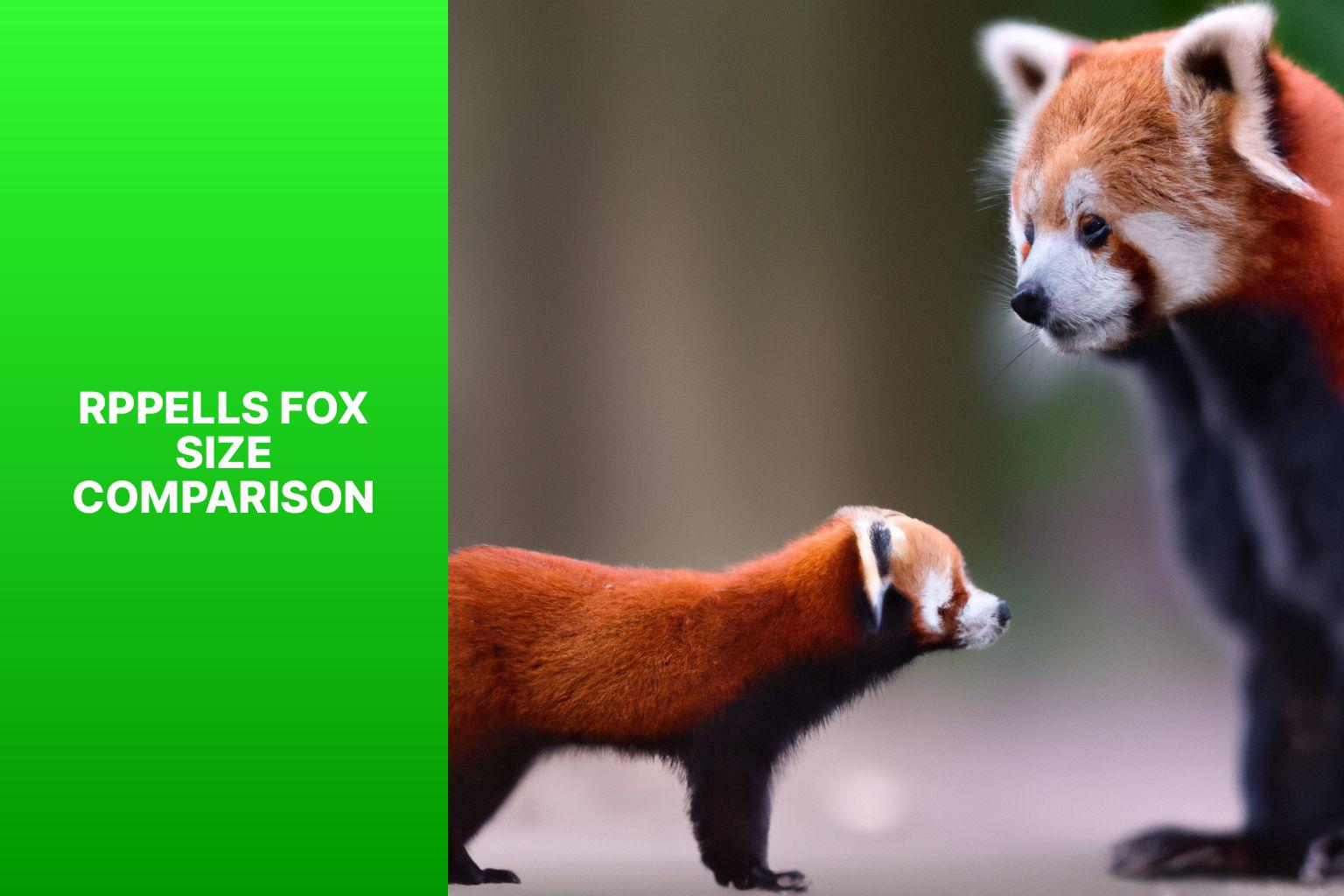R ppell’s Fox, also known as the sand fox, is a fascinating and unique creature that has caught the attention of exotic pet enthusiasts. In this article, we will explore whether R ppell’s Fox can be kept as pets, the care and considerations involved, and alternatives to owning one.
To begin, let’s delve into an introduction to R ppell’s Fox. This small-sized fox species is native to the sandy deserts of North Africa and the Arabian Peninsula. It is well-adapted to the desert environment, with its large ears, bushy tail, and thick fur that helps it regulate body temperature.
Now, the question arises: Can R ppell’s Fox be kept as pets? Before considering this, there are several crucial factors to know. We will discuss the necessary information you need to be aware of before deciding to bring a R ppell’s Fox into your home.
Moving forward, we will explore the proper care and requirements for keeping a R ppell’s Fox as a pet. This includes housing and enclosure requirements, diet and nutrition recommendations, and enrichment and exercise needs to ensure their physical and mental well-being.
It is also essential to consider the legal and ethical considerations of keeping R ppell’s Fox as pets. We will discuss the legal guidelines and restrictions in place, as well as the ethical concerns surrounding the ownership of exotic animals and the conservation efforts necessary to protect their wild populations.
We will provide alternatives to owning a R ppell’s Fox. This includes exploring the option of domesticated foxes, which have undergone selective breeding for generations, as well as other exotic pets that may be more suitable for domestic settings.
Before making a decision about owning a R ppell’s Fox, it is crucial to understand the complexities and responsibilities involved in caring for these unique animals. By considering all aspects and alternatives, you can make an informed choice that prioritizes animal welfare and your own capacity to provide proper care.
(Note: Please note that owning an exotic pet such as R ppell’s Fox may be subject to specific legal regulations and restrictions depending on your country or state. Always ensure you are well-informed about the laws and regulations in your area before considering such a pet.)
1. R ppell s Fox as Pets maximizes space: They can be kept in compact enclosures, making them suitable for urban areas where space is limited. 2. R ppell s Fox as Pets conserves water: Their small size and low water needs make them an eco-friendly choice for pet owners. 3. R ppell s Fox as Pets offers a unique and exotic pet option: It is essential to consider legal guidelines, ethical concerns, and conservation efforts before deciding to keep them as pets.
Contents
- 1 Can R ppell s Fox Be Kept as Pets?
- 2 Caring for a R ppell s Fox
- 3 Legal and Ethical Considerations of Keeping R ppell s Fox as Pets
- 4 Domesticated Foxes
- 5 Frequently Asked Questions
- 5.1 Can R ppell’s foxes be kept as pets?
- 5.2 How long do R ppell’s foxes live in captivity?
- 5.3 Are R ppell’s foxes suitable for hot climates?
- 5.4 What are the flight options for purchasing a R ppell’s fox?
- 5.5 How does R ppell’s fox compare to other popular pet fox species?
- 5.6 What are the threats to R ppell’s fox population?
Can R ppell s Fox Be Kept as Pets?
Curious about keeping a R ppell s Fox as a pet? Let’s dive into whether this adorable creature can truly be a domestic companion. Discover the essential things you need to know before deciding to bring a R ppell s Fox into your home. Get ready to explore the facts, figures, and important considerations that will help you make an informed decision about welcoming one of these fascinating animals into your life.
What You Need to Know Before Getting a R ppell s Fox
Before getting a R ppell’s Fox as a pet, it is important to know what you need to know before getting a R ppell s Fox.
They have specific needs and requirements that must be considered.
The size of your living space is crucial as they require a large outdoor enclosure with plenty of room to roam.
It is important to provide a varied and balanced diet consisting mainly of meat to meet their nutritional needs.
Enrichment and exercise are crucial for their well-being since they are highly active animals.
It is also essential to research and understand the legal guidelines and restrictions regarding owning exotic pets in your area.
It is crucial to consider the ethical concerns associated with owning a R ppell’s Fox, as they are wild animals that should ideally live in their natural habitats.
By taking these factors into account and being fully prepared, you can make an informed decision on whether or not a R ppell’s Fox is the right pet for you.
Caring for a R ppell s Fox

Photo Credits: Foxauthority.Com by Jacob Moore
Caring for a R ppell’s Fox is an exciting journey filled with unique challenges and rewards. In this section, we will explore the essential aspects of their care, including housing and enclosure requirements, diet and nutrition, as well as enrichment and exercise. Discover how to create a safe and stimulating environment for your furry companion, ensuring their physical and mental well-being. From the ideal living space to a balanced diet, we’ll provide valuable insights to help you give your R ppell’s Fox the best possible care.
Housing and Enclosure Requirements
R ppell’s fox housing and enclosure requirements:
- Size: The enclosure should be at least 12 square meters to meet the housing and enclosure requirements.
- Security: To satisfy the housing and enclosure requirements, the enclosure should have a 1.8-meter high fence that is buried 30 centimeters below ground.
- Shelter: As per the housing and enclosure requirements, provide a shelter, such as a wooden or insulated doghouse.
- Enrichment: To meet the housing and enclosure requirements, include objects like logs, tunnels, and platforms for mental stimulation and exercise.
- Ground Cover: To fulfill the housing and enclosure requirements, use natural substrate like sand or grass for the fox’s natural behaviors.
- Escape-proof Feeding Area: As part of the housing and enclosure requirements, create a separate enclosed space for feeding to prevent competition and aggression.
- Cleaning: To ensure the fox’s health and well-being, regularly clean and maintain the enclosure, meeting the housing and enclosure requirements.
Pro-tip: Providing hiding places and opportunities for natural behaviors like climbing and digging enhances the fox’s well-being and mental stimulation.
Diet and Nutrition
A balanced and appropriate diet and nutrition plan is crucial for the well-being of a R ppell s Fox. Consider the following:
- For optimal nutrition, it is important to provide a protein-rich diet for R ppell s Foxes. Since they are carnivores, their diet should primarily consist of animal-based protein. This can include lean meats such as chicken, turkey, and rabbit.
- To ensure a diverse nutrient intake, it is recommended to offer a variety of meat sources to R ppell s Foxes. This can include beef, pork, and even small amounts of offal.
- Incorporating small prey items like mice or insects in the diet can be beneficial, as R ppell s Foxes feed on small mammals and insects in the wild.
- To ensure optimal health, it may be necessary to consult a veterinarian to determine if vitamin and mineral supplements are required to supplement the fox’s diet.
- Avoid feeding processed foods designed for domestic pets to R ppell s Foxes, as these foods may lack necessary nutrients and can lead to health issues.
- Proper hydration is essential, so provide clean and fresh water for your fox.
- Maintaining a regular feeding schedule is important to prevent overfeeding. The frequency and portion sizes of feedings should be determined based on factors such as age, activity level, and overall health of the fox.
It is crucial to consult a veterinarian or an expert in exotic animal care to ensure that the diet and nutrition plan is suitable for your R ppell s Fox. Each fox may have slightly different dietary requirements based on individual needs.
Enrichment and Exercise
Enrichment and exercise are essential for the well-being of R ppell’s Foxes. Here are some tips for providing them with the necessary physical and mental stimulation:
- Give them a spacious enclosure: R ppell’s Foxes are active and agile, so they require a large and secure space to run, jump, and explore, ensuring proper enrichment and exercise.
- Include climbing opportunities: These foxes thoroughly enjoy climbing, so be sure to incorporate platforms, branches, and perches into their enclosure. This will enable them to engage in exercise and enrichment while satisfying their natural instinct.
- Provide hiding spots: R ppell’s Foxes have a natural inclination to burrow, so it is important to offer tunnels, dens, and boxes that will fulfill their natural behaviors and provide mental stimulation as they exercise.
- Use toys and puzzles: Engaging their cognitive abilities is crucial, and you can achieve this by introducing puzzle toys and interactive feeders filled with treats or food. This encourages problem-solving skills while providing mental stimulation as they exercise.
- Rotate and vary enrichment: To prevent boredom and maintain both mental and physical stimulation, it is important to consistently change the enrichment items in their enclosure. This keeps them engaged and excited.
- Encourage foraging: Stimulate their natural hunting behaviors and provide exercise by scattering food or hiding it in puzzle feeders. This allows them to engage in their instinctual foraging behavior while getting the exercise they need.
- Allow supervised playtime outside the enclosure: It is beneficial to give R ppell’s Foxes the opportunity to explore and participate in more vigorous exercise in a secure and safe area. This additional exercise, coupled with proper enrichment, ensures their overall well-being.
Incorporating enrichment and exercise into the lives of R ppell’s Foxes is crucial for their physical and mental health. Take these suggestions into consideration to ensure they lead a fulfilling and stimulating life.
Legal and Ethical Considerations of Keeping R ppell s Fox as Pets
Keeping R ppell s Fox as pets may seem intriguing, but before you consider it, there are important legal and ethical considerations to explore. In this section, we’ll delve into the legal guidelines and restrictions surrounding the ownership of these exotic animals. We’ll also address the ethical concerns and conservation efforts related to keeping R ppell s Fox as pets. We’ll touch on the broader context of owning other exotic pets, providing a comprehensive view of the topic. Let’s navigate the world of fox ownership responsibly and ethically.
Legal Guidelines and Restrictions
Owning a R ppell’s Fox as a pet involves following legal guidelines and restrictions:
- Special permits: Many countries require a special permit to own a R ppell’s Fox as a pet. This ensures legal acquisition and proper care.
- National and regional laws: Laws and regulations for owning exotic pets differ between countries and regions. Researching and understanding specific laws in your area is essential.
- Fencing and containment: To comply with legal guidelines, owners may need secure fencing or enclosures to prevent escape and ensure safety.
- Health and vaccination requirements: Keeping R ppell’s Foxes as pets may entail adhering to specific health and vaccination regulations set by local authorities. Consult experienced veterinarians in exotic pet care for compliance.
- Reporting and record-keeping: Some countries require owners of R ppell’s Foxes to report ownership and maintain records. This helps ensure animal welfare and oversight.
It is crucial to thoroughly understand and abide by all legal guidelines and restrictions in your area before deciding to have a R ppell’s Fox as a pet. This ensures the fox’s well-being and compliance with the law.
Ethical Concerns and Conservation Efforts
When keeping R ppell s Foxes as pets, it is important to consider the following ethical concerns and conservation efforts:
1. Impact on wild populations: Capturing and trading wild animals for the pet trade negatively affects their populations in the wild. R ppell s Foxes are native to Africa and face threats such as habitat loss and poaching. Keeping them as pets could contribute to their decline in the wild.
2. Ethical considerations: Keeping wild animals as pets raises ethical concerns. These foxes have specific needs that are challenging to meet in a domestic setting. They require ample space, proper socialization, specialized diets, and enrichment activities. Most pet owners may struggle to provide these requirements.
3. Conservation efforts: Instead of keeping R ppell s Foxes as pets, it is more ethical and responsible to support conservation efforts that protect their natural habitats and preserve their populations. Donating to or volunteering with organizations working towards their conservation can make a significant difference.
4. Alternative options: If you’re interested in owning a fox-like pet, domesticated foxes are a better alternative. These animals have been selectively bred in captivity and are more suitable for domestic life. There are many other exotic pets bred in captivity that don’t pose the same ethical concerns as wild-caught animals.
By considering these ethical concerns and supporting conservation efforts, individuals can make informed and responsible choices regarding the ownership of R ppell s Foxes as pets.
Domesticated Foxes
1. Legal considerations: Before deciding to own a domesticated fox as a pet, it is crucial to conduct thorough research and gain a comprehensive understanding of the legalities surrounding this type of ownership. Different regions and countries may have specific regulations or restrictions pertaining to domesticated foxes.
2. Behavior and socialization: Domesticated foxes have been developed through selective breeding, but they still retain some of their wild instincts. To ensure their proper behavior and smooth adaptation to a domestic environment, early and ongoing socialization is of utmost importance.
3. Housing requirements: To provide a suitable living space for domesticated foxes, it is essential to create a spacious and secure enclosure. This should include an outdoor area that is dig-proof and equipped with secure fencing, as well as a comfortable indoor space for times when the foxes are unsupervised.
4. Diet and nutrition: Maintaining a balanced diet is crucial for the well-being of domesticated foxes. This entails offering high-quality commercial fox food, along with fresh fruits and vegetables, and occasional treats. To ascertain their specific nutritional needs, it is advisable to seek advice from an exotic pet veterinarian.
5. Veterinary care: Regular veterinary check-ups and vaccinations are vital for ensuring the overall health of domesticated foxes. It is imperative to find a veterinarian who is experienced in treating exotic animals to provide the necessary medical care.
6. Enrichment and stimulation: To prevent boredom and promote overall well-being, it is important to provide domesticated foxes with both mental and physical stimulation. This can be achieved through the use of toys, puzzles, and various environmental enrichment activities that cater to their natural instincts. Regular exercise, playtime, and interaction with their human family members are crucial.
7. Commitment and responsibility: It is essential to bear in mind that owning a domesticated fox requires a significant level of long-term commitment, time, effort, and resources. These animals have unique needs and demand dedicated care and attention. Before deciding to bring a domesticated fox into your home, carefully consider the level of commitment and responsibility involved.
Owning domesticated foxes can be a rewarding experience, but comprehensive research is essential. It is crucial to grasp their specific needs, legal requirements, and the responsibilities associated with their ownership before making a decision.
Other Exotic Pets
When considering Other Exotic Pets, it is important to consider each species’ specific needs and requirements. Here is a list of Other Exotic Pets to consider:
1. Sugar Gliders: These small marsupials can glide through the air. They require a specialized diet of fruits, vegetables, and protein sources.
2. Hedgehogs: These small, prickly creatures need a balanced diet including high-quality cat food and insects. They require appropriate housing with hiding places and an exercise wheel.
3. Axolotls: These unique aquatic creatures need a fully aquatic setup with clean water and the right temperature. They primarily eat live or frozen foods like bloodworms and brine shrimp.
4. Chinchillas: These small rodents with soft fur require a diet rich in hay, pellets, and occasional treats. They also need a large, multi-level cage and exercise opportunities.
5. Serval Cats: These medium-sized wild cats require a specialized diet of raw meat and bones. They need a spacious enclosure with vertical space for climbing and jumping.
When considering any exotic pet, it is essential to research their specific care requirements, including diet, housing, and enrichment. Make sure owning an exotic pet is legal in your area and consider the ethical implications of keeping such animals. Always consult experts before bringing an exotic pet into your home.
Frequently Asked Questions
Can R ppell’s foxes be kept as pets?
Yes, R ppell’s foxes can be kept as pets under certain circumstances. It is important to check the laws regarding pet foxes in your state, as regulations vary.
How long do R ppell’s foxes live in captivity?
R ppell’s foxes can live for 10-12 years in captivity with proper care.
Are R ppell’s foxes suitable for hot climates?
Yes, R ppell’s foxes are adapted to live comfortably in hot arid regions of Africa and are active hunters during both day and night.
What are the flight options for purchasing a R ppell’s fox?
Live animals, including R ppell’s foxes, are shipped within the United States only and will be transported using American Airlines or Delta to the nearest airport. Flight options will be communicated with customers to find the best option, taking into consideration temperatures and state laws.
How does R ppell’s fox compare to other popular pet fox species?
R ppell’s fox is a unique and lesser-known pet fox species. The fennec fox is the most popular type of pet fox, known for its small size, long life expectancy, and sweet personality. Red foxes are not as popular as pets, but some owners describe them as sweet as house cats. Silver foxes are a domesticated variety of red fox that have been bred in Russia and have a dog-like disposition and little smell.
What are the threats to R ppell’s fox population?
The main threats to R ppell’s foxes are hunting and poisoning. They also compete with Red foxes for resources in some areas. Their population is currently stable, and they are classified as Least Concern on the IUCN Red List.


